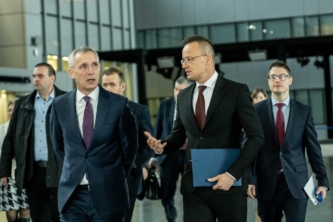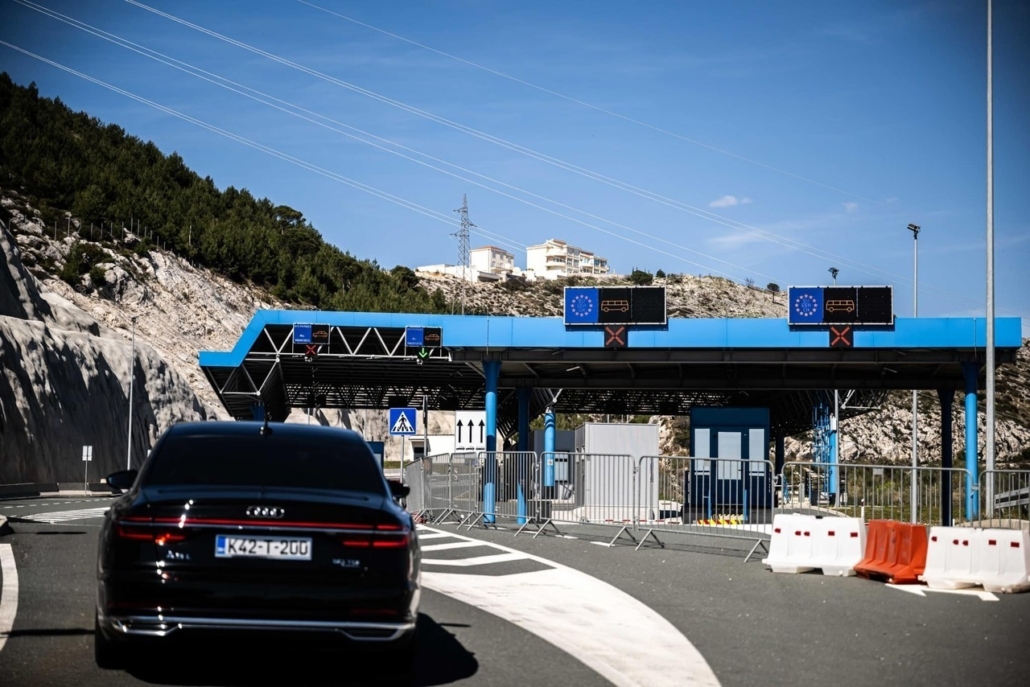Foreign Minister Szijjártó insists that the integration of Western Balkans would strengthen the EU
Foreign Minister Péter Szijjártó on Wednesday called for European Union enlargement to be speeded up, saying that the integration of Western Balkan countries would strengthen the bloc and help in the handling of current issues.
Szijjártó met his Bosnia-Herzegovina counterpart, Elmedin Konakovic, in Sarajevo, and noted at a joint press conference after the talks that the war in Ukraine presented the EU with serious challenges, the ministry said in a statement.
The situation has shown that the EU made a mistake when dragging its feet on enlargement in the past, he said. “Should the Western Balkans be part of the bloc, the dramatic impact of the current difficult situation could be handled far more easily,” he said, adding that the accession of the Western Balkan states would also bolster the bloc against illegal migration.
Szijjártó slammed member states which he said “support enlargement rhetorically but continue to block the process otherwise.” He called on “anti-enlargement countries” to stop blocking the process “as this harms the EU and is a national security risk for Hungary”, he said.
The root causes of migration are becoming more grievious, and so migration pressure is expected to grow from already high numbers last year, when Hungarian authorities registered 265,000 illegal entry attempts, he said. “Migration is dangerous and so it has to be stopped, and we know that the stronger the cooperation with Western Balkan states, the more effectively can we stop waves of migration,” he said.
Stability in Bosnia and Herzegovina is a priority for Hungary, he said, calling on the EU to “take meaningful steps” to facilitate its integration. Hungary has already sent experts to Sarajevo to aid the accession process, and has deployed 165 troops to the EU’s peace keeping mission in the country, he noted.
Szijjártó rejected the EU employing “any sort of sanctions on democratically elected leaders in the region”. “Those thinking we can solve a problem by sanctions have no idea of the situation here and are trying to conceal their ignorance with a sort of hubris.” Meanwhile, trade between Hungary and Bosnia-Herzegovina jumped by a record 21 percent last year, to EUR 600 million, he said.
Hungary has launched a mutually advantageous economic development scheme in the country, which allows local farmers to buy Hungarian agricultural machinery. Fully 805 companies have applied for the programme, contracting a total of EUR 11.5 million in support, he said.
Regarding the re-election of Milorad Dodik, the Serbian member of Bosnia-Herzegovina’s presidential troika, he said Hungary respected the results. At the same time, he rejected the US State Department’s latest report on Bosnia-Herzegovina, saying it was “outrageous that they should make statements about other countries’ internal affairs and situation”.

Read alsoNATO ignores Hungary’s objection, holds Ukraine committee meeting
Source: MTI
please make a donation here
Hot news
What happened today in Hungary? – 19 April, 2024
British American Tobacco is expanding production in Hungary
Budapest mayoral candidate Vitézy promises thousands of units of affordable housing
Habits regarding tipping in Hungary may shock you
PM Orbán’s chilling warning: NATO is sliding into the war
VSquare: PM Orbán’s only son, Captain Gáspár, may be creating new Hungarian super secret service





2 Comments
As Mr. Szijjártó knows full well, these countries need to meet the accession criteria, or Copenhagen criteria (after the European Council in Copenhagen in 1993 which defined them), are the essential conditions all candidate countries must satisfy to become a member state. These are:
1. political criteria: stability of institutions guaranteeing democracy, the rule of law, human rights and respect for and protection of minorities;
2. economic criteria: a functioning market economy and the capacity to cope with competition and market forces; and
3. administrative and institutional capacity to effectively implement the acquis and ability to take on the obligations of membership.
The acquis is the body of common rights and obligations that is binding on all the EU member states. It is constantly evolving and comprises:
1. the content, principles and political objectives of the Treaties;
2. legislation adopted pursuant to the Treaties and the case law of the Court of Justice;
3. declarations and resolutions adopted by the Union;
4. instruments under the Common Foreign and Security Policy;
5. international agreements concluded by the Union and those entered into by the member states among themselves within the sphere of the Union’s activities.
It’s a club, the club has rules, and we already have issues living up to them.
Is he proposing a pragmatic waiver, since he keeps on bringing up accession without highlighting the criteria?
How very interesting that we don’t read about the FM, or our PM extolling Türkiye’s virtues about EU integration, after all Our PM purports to be Erdogan’s good friend.